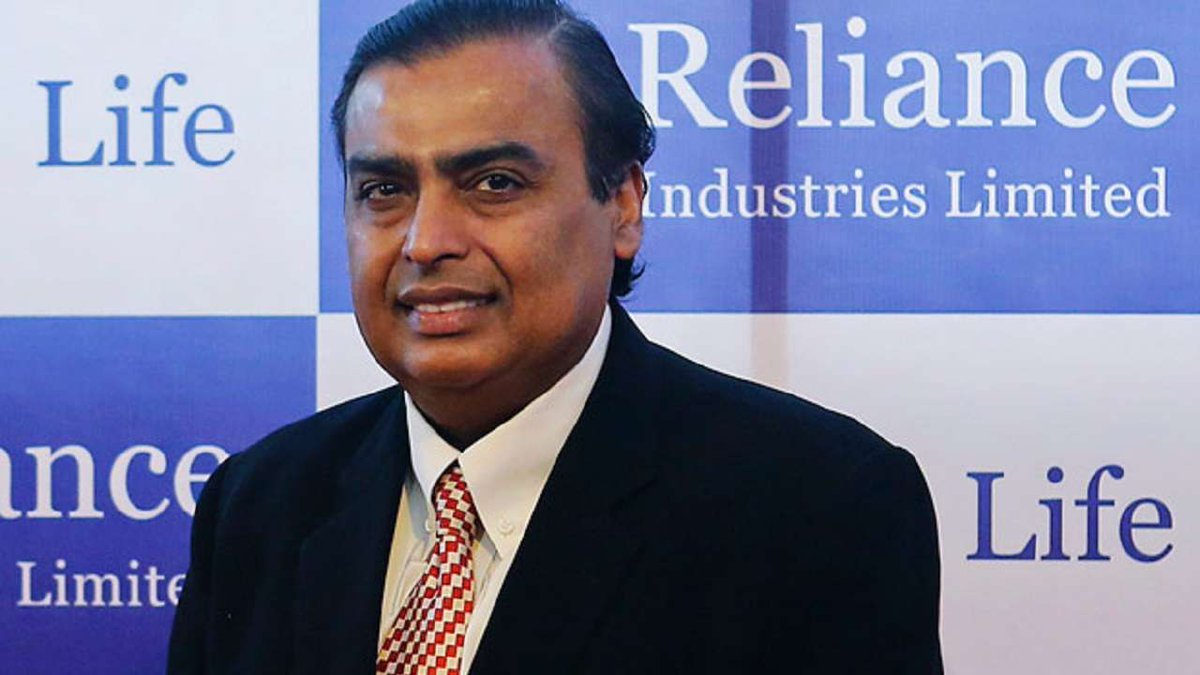RIL chairman said technological progress will make energy affordable on the basis of commercial viability.
New Delhi, NFAPost: As India shapes its energy transition to cleaner fuels, billionaire Mukesh Ambani on Wednesday said technological advancements will make India a global new energy leader, exporting half a trillion dollars worth of clean energy in two decades.
Ambani, who is helming a transition to green hydrogen production at its oil-dominant conglomerate, said India is today one of the most attractive opportunities for renewable energy investment anywhere in the world.
But the transition to clean, emission-free energy cannot happen overnight and India’s dependence on coal and imported oil will continue for the next 2 to 3 decades, he said.
“But, we must have a plan to eliminate that in the next 2-3 decades,” he said. “Hence, in the near and medium-term, we will have to follow low-carbon, and no-carbon strategies of development.”
And technology will help lower the costs of new and clean energy, he said speaking at Asia Economic Dialogue.
Ambani said the climate crisis is an existential crisis and energy transition will determine geopolitical transition in the 21st century.
Europe overtook India and China to emerge as the world leader when wood was replaced with coal. Similarly, with the emergence of oil, the US and West Asia outgrew others.
“When India becomes not only self-sufficient in green and clean energy, but also a large exporter, it will help India emerge as a global power,” he said.
This transition will create green jobs as well as result in massive foreign exchange savings.
As a nation that is more than 85 per cent dependent on coal and oil for its energy needs, India has put its focus on making electricity generated from renewable sources such as solar and wind a bulk of its power usage and replacing polluting fuel with carbon-emission free hydrogen.
It has unveiled a new policy to use renewable electricity to split water to make hydrogen, which can be used as fuel in an array of industries – from refineries to steel plants and can be used as an automotive fuel as well.
While the last two decades saw India’s emergence as an IT superpower; the next 20 years will mark its emergence as a superpower in energy and life sciences, Ambani, who is the chairman and managing director of Reliance Industries Ltd, said.
“I have absolutely no doubt that India can, and India will emerge as a global New Energy leader,” he said. India is amongst the first in the world to announce hydrogen pumps.
“While the world is still grappling with this, we have put our vision of exporting Green Energy out of India on the table,” he said adding India will not only be self-sufficient in energy but can also export green energy.
This will be aided by proactive and forward-looking policy support and action by both central and state governments, assured financing options and young entrepreneurs.
“I foresee at least 20-30 new Indian companies in the energy and tech space which will grow as big as Reliance, if not bigger, in the next 10-20 years,” he said.
It took Reliance about 15 years to become a $1 billion company, 30 years to reach $10 billion, 35 years to become a $100 billion company and 38 years to touch $200 billion.
“India’s technology and digital exports have risen to $150 billion from less than $10 billion 20 years ago. By 2030, I believe they will exceed half a trillion dollars. Similarly, India’s clean and green energy exports in the next 20 years, at the end of 20 years also has the potential of half a trillion dollars of export,” he said.
Ambani said technological progress will make energy affordable on the basis of commercial viability.
On top of it, the government is extremely committed to promoting new energy through transparent and pro-consumer policies.
India achieved its target of 40 per cent power generation from renewables that was set for 2030, in 2021 itself.
India aims to achieve 500 gigawatts of renewable power capacity.
Ambani said the cost of green hydrogen can be brought down to a dollar per kilo and transport and disbursement costs may be restricted to less than a dollar per kilo.
“India’s progress is unstoppable. We will become a 5-trillion-dollar economy, and we will become a 10-trillion-dollar-economy. We can only argue about whether it happens in 2025 or 2027 or whether in 2030 or 2032,” he said.
The country’s per capita energy consumption is one-third of the world and an average Indian’s annual carbon emissions is about one-fifth that of an average Chinese or one-eighth of an average American.
“India’s per capita income today is around $2,000, compared to Europe’s $38,000. I believe that with our progress, we will reach $10,000 per capita in the next 15-20 years,” he said. “This will increase our energy demand.”
And at the same time, incremental energy will be met at affordable rates because of the progress in technology and the abundance of renewable resources.
“So, I believe that India will be among the fastest-growing large economy and our energy needs are going to double in the next couple of decades,” he said.
India will overtake the European Union as the world’s third-largest economy by 2030-32.
Ambani said India must increase energy output to drive double-digit GDP growth. And this has to be at an affordable basis of the use of technology.
Also, it must increase the share of green and clean energy in this enhanced output.





